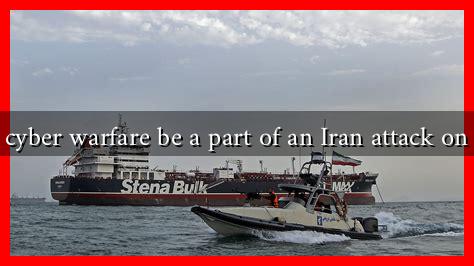-
Table of Contents
Could Cyber Warfare Be a Part of an Iran Attack on Israel?
As geopolitical tensions continue to rise in the Middle East, the prospect of military conflict between Iran and Israel looms large. While traditional military strategies are often the focus of discussions regarding potential attacks, the role of cyber warfare has emerged as a critical component of modern conflict. This article explores the possibility of cyber warfare being a part of an Iranian attack on Israel, examining the implications, historical context, and potential outcomes.
The Rise of Cyber Warfare
Cyber warfare refers to the use of digital attacks by one nation to disrupt the vital computer systems of another. This form of warfare has gained prominence in recent years, with nations increasingly recognizing its potential to achieve strategic objectives without the need for conventional military engagement. Key characteristics of cyber warfare include:
- Stealth: Cyber attacks can be executed without immediate detection, allowing for surprise and strategic advantage.
- Cost-effectiveness: Cyber operations often require fewer resources compared to traditional military campaigns.
- Global Reach: Cyber attacks can be launched from anywhere in the world, making geographical boundaries less relevant.
Iran’s Cyber Capabilities
Iran has made significant strides in developing its cyber warfare capabilities over the past decade.
. The Iranian government has invested heavily in its cyber infrastructure, leading to the establishment of organizations such as the Iranian Cyber Army and the Islamic Revolutionary Guard Corps (IRGC) Cyber Command. Notable examples of Iran’s cyber operations include:
- Stuxnet (2010): A sophisticated worm that targeted Iran’s nuclear facilities, attributed to a joint U.S.-Israeli operation.
- Cyber Attacks on U.S. Banks (2012): A series of distributed denial-of-service (DDoS) attacks that disrupted the online services of major U.S. financial institutions.
- Attack on Saudi Aramco (2012): A destructive malware attack that wiped out data on thousands of computers, showcasing Iran’s offensive capabilities.
These incidents illustrate Iran’s growing expertise in cyber operations, which could be leveraged in a potential conflict with Israel.
Potential Cyber Strategies Against Israel
In the event of an armed conflict, Iran could employ various cyber strategies to target Israel’s critical infrastructure. Some potential avenues include:
- Disruption of Military Communications: Targeting communication networks to create confusion and hinder operational coordination.
- Attacks on Critical Infrastructure: Disrupting power grids, water supply systems, and transportation networks to create chaos and undermine public confidence.
- Cyber Espionage: Gathering intelligence on Israeli military plans and capabilities to inform Iranian strategies.
Historical Context: Israel’s Cyber Defense
Israel is widely recognized as a global leader in cybersecurity, with a robust defense infrastructure designed to counter cyber threats. The Israeli government has established various agencies, such as the National Cyber Directorate, to protect against cyber attacks. Israel’s proactive approach includes:
- Investment in Cybersecurity Technologies: Continuous development of advanced technologies to safeguard critical systems.
- Collaboration with Private Sector: Engaging tech companies to enhance national cybersecurity efforts.
- International Partnerships: Collaborating with allies, particularly the United States, to share intelligence and best practices.
These measures have made Israel a formidable opponent in the cyber domain, potentially deterring Iranian cyber operations.
Conclusion: The Future of Cyber Warfare in Middle Eastern Conflicts
The potential for cyber warfare to play a significant role in an Iranian attack on Israel cannot be underestimated. As both nations continue to enhance their cyber capabilities, the likelihood of cyber operations being integrated into military strategies increases. While traditional military confrontations remain a concern, the digital battlefield is becoming equally important. The outcome of such conflicts may hinge not only on physical military strength but also on the effectiveness of cyber defenses and offensive capabilities.
In summary, as tensions escalate in the region, understanding the implications of cyber warfare is crucial for policymakers and military strategists alike. The future of conflict may very well be shaped by the unseen battles fought in cyberspace.
For further reading on the implications of cyber warfare, you can visit Council on Foreign Relations.





